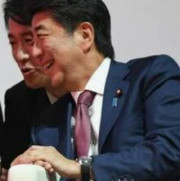“Over the last 20 years we have learned things and changed. We want to prove that we are not what anti-Taliban propaganda has portrayed us to be. We want to show that to the world” said Taliban Minister of Information, Zabihullah Mojahed, in an exclusive interview with RT’s Murad Gazdiev on Thursday.
As he spoke, allied forces attempted to evacuate the thousands of Afghans that have descended on Kabul airport, in a desperate attempt to flee the Taliban-controlled country. Western forces continue to work towards the deadline of 31st August in a bid to get as many people out of the country as possible, despite a terrorist attack which took place on Thursday at Kabul airport killing at least 100 people, including 13 US servicemen. The finger is being pointed at the group ISIS-K for carrying out the attack, which British officials warned about in advance, citing an intelligence source. The Taliban claimed to RT however that they themselves had told NATO of the likelihood of a terrorist attack on Thursday. Despite the warnings, the western soldiers continued in their efforts, paying the ultimate price for Biden’s evacuation plan.
There is clearly a degree of cooperation between the Taliban and western military at the moment, including a controversial sharing of biometric information on Afghans who had helped the US over the last couple of decades. Conservative MP and ex-veteran Tom Tugendhat said that he was ‘stunned’ at the news of this, as it potentially put thousands of people at risk of being hunted down by the Taliban. Tugendhat has been at the forefront of criticism of the allied withdrawal from Afghanistan, believing it was a grave mistake. He said on Sky News on Friday: ‘We have just been defeated. We have no influence over the Taliban any more...This is awful, this is absolutely tragic.’
The rhetoric coming from the UK and US establishment continues to take a conciliatory tone towards the Taliban however. Prime Minister Boris Johnson stated on Thursday ‘we will encourage the new authorities’ to allow more Afghans to leave after the deadline of August 31st. He said ‘We want to work with other partner countries to engage with the Taliban to try to get a political process going that gives a more inclusive future’. This contradicts Tom Tugendhat’s view however, that Britain no longer has any influence over the Taliban, and also goes against reports that the Taliban have blocked other routes out of the country already, with those who have not managed to get to the airport now forced into hiding. As such, Tugendhat has warned the UK could be seeing ‘the biggest hostage crisis’ ever, with as many as 3000 ‘entitled’ people remaining trapped in Afghanistan.
This follows on from what was clearly a concerted PR campaign which began last week to suggest that the Taliban had ‘changed’, with UK Defence Staff Chief, Nick Carter, stating that the extremist terrorist group which the US arrived 20 years in Afghanistan to fight was a group of ‘country boys’ that perhaps didn’t warrant the label of ‘enemy’. Others, including Taliban experts, take a different view. Dr Liza Schuster, formerly based at Kabul University, said recently, ‘The Taliban have not changed. If western governments are choosing to believe the Taliban propaganda, it's because it serves their purposes.’ Therefore it can be seen as an attempt by the allies to ‘soften the blow’ of defeat by portraying the Taliban as different from the brutal, ruthless religious extremists depicted for years by western politicians and media alike.
The horror of what is happening now is only exacerbated by the fear of what could happen after the allied withdrawal. If the attack on Kabul airport is an indication of what is to come, it is clear that the Taliban are not as in control as they would like people to think. The threat from ISIS-K and other groups opposed to the Taliban, is real, and it’s not clear if the Taliban have the resources to provide the security needed. And despite their assertions that they will not purge those Afghans left behind who helped the Americans in recent years, there is no real confidence that the Taliban’s word can be trusted. The desperation and fear of those attempting to leave the country and those in hiding at the moment reflects that in the minds of ordinary Afghans, the Taliban remains a threat to their very existence.
There are also signs that the allied withdrawal will have an impact beyond the borders of Afghanistan. For the moment the Afghan government fell to the Taliban earlier this month, there were reports in Russian media that Taliban insurgents across the Muslim world were calling for similiar uprisings from ‘the Caucausus to Yemen’. Indeed, a senior member of the Anti-Taliban National Resistance Front has warned this week that The Taliban’s resurgence in Afghanistan will lead to a blossoming of radical Islam in the region and will threaten Russia and Central Asia.
The idea that the country could once again become the terrorist hub that gave birth to the terror attacks on the World Trade Centre, is a hard pill for many to swallow, particularly Afghan war veterans and their families. It is clear that an unstable Afghanistan is not only a threat to its neighbours, but to the entire world. Trump may have started the ball rolling, but Biden’s chaotic, hellish exit from Afghanistan is opening a Pandora’s box, the consequences of which should fill each and every one of us with dread.









